Description
ABSTRACT
Enacting Anti-thin Capitalisation Rules for Nigeria
Dr. Olumide Obayemi
With falling revenue arising from global shortfall in the production and sale of crude oil, the Nigerian government needs to start garnering revenue from other sources, such as tightening up the country’s thin capitalisation practice through a formal enactment of statutory provisions that would bar thin capitalisation by Multi-National Companies (MNCs) and foreign investors who would use the provisions allowing deduction of interest as means of siphoning income accruing from within the Nigerian territory to other countries. In drafting such laws, Nigerian lawmakers must learn from the existing laws in other countries, and as well avoid the inefficiencies faced by early thin capitalisation regulations. Using the tax models in the United States of America, Germany and Canada as examples, we provide theories and contents that ought to guide Nigerian lawmakers in enacting effective thin capitalisation rules.
INTRODUCTION
As a result of dwindling revenue from global crude oil sale, the Nigerian federal government is facing some of the largest budget deficits in its history, and Nigerian finance experts and tax stakeholders have opined that the projected budget deficits are unsustainable and that the federal government needs to close the budget gap through reduced spending and/or increased revenue. In the present author’s view, one way the Nigerian government could increase tax revenue is through tightening its thin capitalisation/interest deduction rules.
That Nigeria, the largest economy in Africa, has no formal laws to regulate “thin capitalisation”1 is peculiar.2 We begin, therefore, by researching and investigating worldwide tax measures which address the problems of thin capitalisation, income stripping/shifting, and cross border-shifting of profit through excessive debt, within the context of contemporary legislative approaches frequently adopted globally.3 Further, we critique thin capitalisation rules by analysing frequent issues arising under thin capitalisation regulations, since several countries and the Organisation for Economic Cooperation and Development (OECD)4 have adopted differing approaches to problems emanating from thin capitalisation as is evident from the OECD’s model legislation.5
* LL.M, BL, SJD. Admitted to the Bars of the Federal Republic of Nigeria and the State of California. Senior Lecturer, Department of Business Law, Lagos State University and Legal Practitioner, Ajumogobia & Okeke, Lagos
- Some analysts prefer to focus on how income is shifted from one jurisdiction to another, and use the terms “interest stripping” or “earnings stripping”. Stuart Webber, ‘Thin Capitalisation and Interest Deduction Rules: A Worldwide Survey’ (2010) 60(9) Tax Notes Int’l 683 at 684. (hereinafter Stuart Webber)
- Mathew Olusanya Gbonjubola, ‘Transfer Pricing and Thin Capitalization’ (Paper delivered at the Chartered I n s t i t u t e o f T a x a t i o n o f N i g e r i a ( C I T N ) 2 0 1 3 T a x C o n f e r e n c e ) 1 2 . accessed 21 January 2016. (hereinafter Gbonjubola)
- We shall attempt to examine thin capitalisation rules in some Countries, such as the United States of America, Germany and Canada, and identify the characteristics of diverse challenges and complexities arising from drafting effective thin capitalisation/interest deduction rules
- The OECD is the International organisation helping governments tackle the economic, social and governance challenges of a globalised economy. See, www.oecd.org
- See, Centre for Tax Policy and Administration, Organization for Economic Co-Operation and Development (OECD), ‘Transfer Pricing Guidelines for Multinational Enterprises and Tax Administrations’ (2010) (“OECD Guidelines”); See, also, United States House Joint Committee on Taxation, Description of the Revenue Provisions Contained in the President’s Fiscal Year 2010 Budget Proposals. Part three: Provisions Related to Cross-Border Income and Investments, (2009). accessed 21 January 2016 (hereinafter)

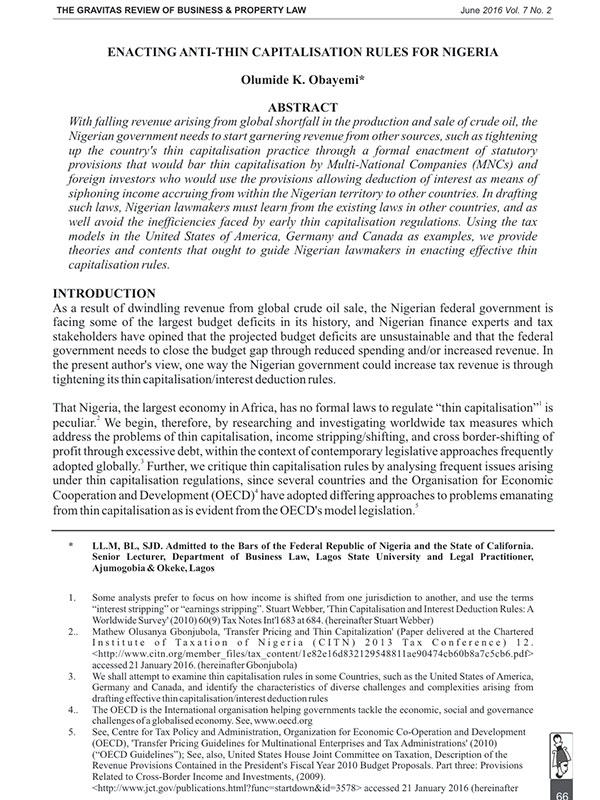
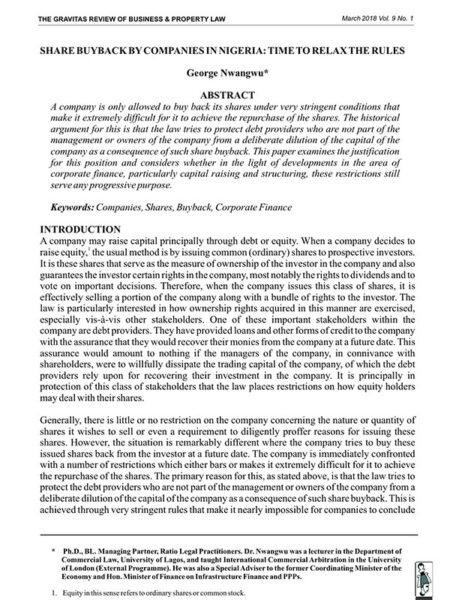
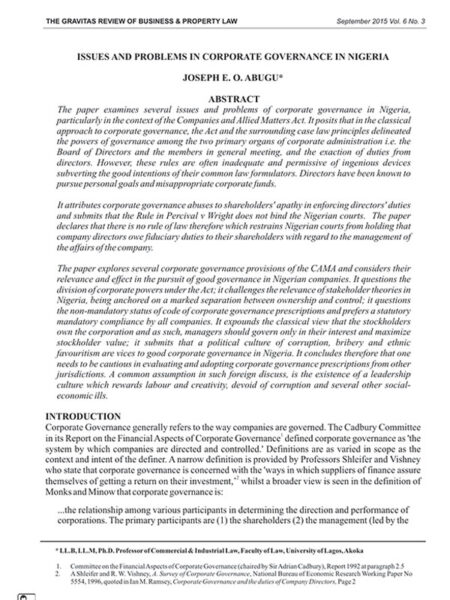
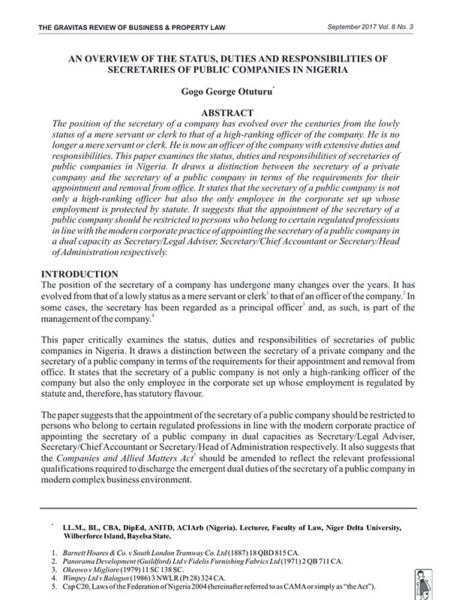
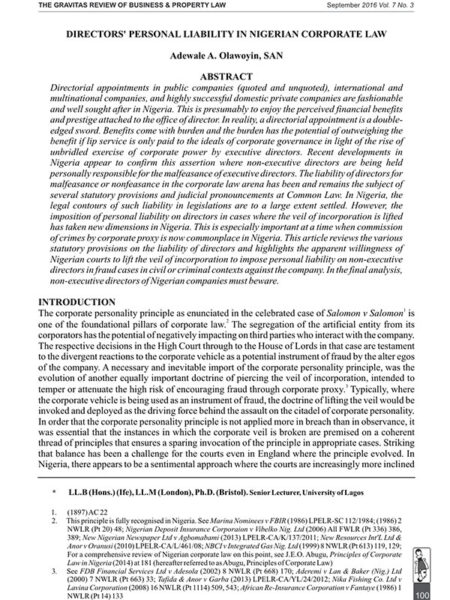


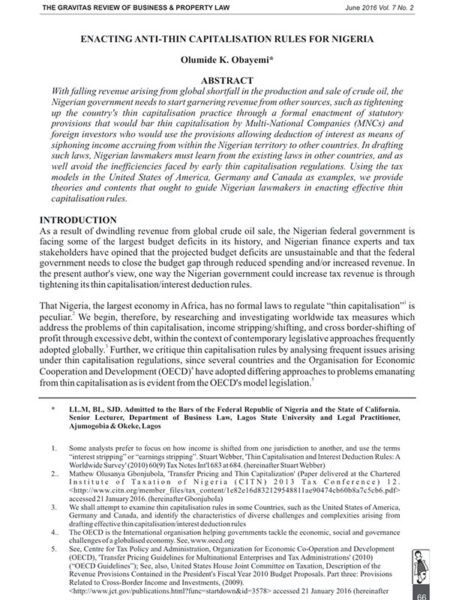
Reviews
There are no reviews yet.